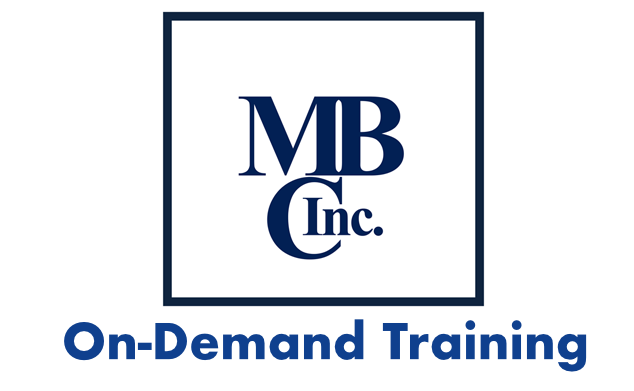“Break” the Cover-It-Up-Mindset!
Another Way of Bringing “Positive-Change”!
A few issues ago I quoted from Thomas Edison “Opportunity is often missed by most people because it comes dressed in overalls and looks like hard work.” If you have been following this newsletter for the past issues it should be apparent that leadership is hard work. Leader with weak skills or undefined skills is even harder work. It behooves everyone in a leadership position to constantly work to improve or strengthen their skills. Leadership development or growth has always been and will always be a life-project. Great leaders are not satisfied with their current ability.
Great leaders are constantly striving to improve. Improvement means change, change means work, work means planning, and planning means structure. “Change, it’s for life.”
Oren Harari’s book “The Leadership Secrets of Colin Powell” chapter five is titled “The Chief Dis-Organizer”. As this leadership series is based on two of Oren Harari’s books concerning the leadership attributes of Colin Powell, the General was not adverse to hard work. I wrote earlier about the axiom “don’t work harder, work smarter”. While I am all for working smarter, this in no way excludes working hard. For those currently in leadership positions you are acutely aware that leadership is hard work. Therefore this series on leadership attributes is not about making effective leaders out of people that are incompetent, this series is about making effective leaders better. It’s about continuous improvement. Continuous improvement is change. Change is work.
concerning the leadership attributes of Colin Powell, the General was not adverse to hard work. I wrote earlier about the axiom “don’t work harder, work smarter”. While I am all for working smarter, this in no way excludes working hard. For those currently in leadership positions you are acutely aware that leadership is hard work. Therefore this series on leadership attributes is not about making effective leaders out of people that are incompetent, this series is about making effective leaders better. It’s about continuous improvement. Continuous improvement is change. Change is work.
This issue is about two questions;
How as a leader can I ‘dig-out’ where change is needed?
How can I find out what is going on and what needs changing?
Let us address the first question first. (That’s call logic and a small attempt at humor.) First of all why would you have to dig-out anything? Doesn’t the leader know what is going on? One question answers the other. The leader must dig-out what is going on because the leader doesn’t always know what is going on. Even if you have an open-door policy and people are free to bring you information. Not everything will be brought to the leader. Many subordinates and peers don’t find it in their best interest to tell the leader when processes or procedures are being circumvented. When the ‘system’ doesn’t work people will make the system work, they see it as their job to get their job done regardless of any deviation they may have to take. As the General has spoken of on many occasions, asking questions is one of the best ways the leader has to “find-out-what-is-going-on”.
Don’t be afraid to talk to the people that do the work. They are the ones that most need the systems, processes and procedures to work effectively. They are the ones that will make changes to make the system work if the defined way is ineffective and inefficient or just outright unusable.
Very early in my career I worked as a Quality Resource for a large manufacturing department. This particular operation had about 700 employees on three shifts. The Department Head, Mike would spend time each day with at least one of the shifts. He would walk the floor talking with many different operators, inspectors, supervisors, maintenance personnel and other resources. He had one quest to find out what the people needed to get their job done in an effective and efficient manner. Whatever people brought to his attention he took seriously. If supervisors needed people trained, arrangements were made, if operators needed tools or had ideas for ‘station rearrangement’ Mike made sure it was considered, adapted and implemented across all shifts. If maintenance personnel needed PM time, tools, equipment access he would get the appropriate persons involved and have the team work toward resolution. Mike was always looking for improvement, increase in efficiency, reduction of work-in-process, etc. As a result everyone across all shifts soon learned that they had a leader that would support their needs. Mike saw work as important and doing work in a correct efficient manner would always be beneficial, not only to the worker but to the Department and as a result to the organization. Mike brought me one of my early lessons in effective leadership. He spent time and personal effort to develop a Department that had ‘trust’ due to his personal integrity and commitment to subordinates and peers. Mike developed trust! Trust takes work to develop but the effort is rewarded exponentially. All this work brought about consistency of work and effort within the department. As an additional benefit many other members of the department at all levels began to exhibit the same behavior. The increases in productivity, quality, uptime, production through-put as well as increases in moral, reduction of turn-over and performance improvements were measureable in all areas of Mike’s sphere-of-responsibility.
toward resolution. Mike was always looking for improvement, increase in efficiency, reduction of work-in-process, etc. As a result everyone across all shifts soon learned that they had a leader that would support their needs. Mike saw work as important and doing work in a correct efficient manner would always be beneficial, not only to the worker but to the Department and as a result to the organization. Mike brought me one of my early lessons in effective leadership. He spent time and personal effort to develop a Department that had ‘trust’ due to his personal integrity and commitment to subordinates and peers. Mike developed trust! Trust takes work to develop but the effort is rewarded exponentially. All this work brought about consistency of work and effort within the department. As an additional benefit many other members of the department at all levels began to exhibit the same behavior. The increases in productivity, quality, uptime, production through-put as well as increases in moral, reduction of turn-over and performance improvements were measureable in all areas of Mike’s sphere-of-responsibility.
All this activity brought about some pretty dramatic change in this department. When it was found that old procedures were ineffective or inefficient changes were made. When it was learned that old processes were not robust changes were made. When it was brought to the attention of leaders that work that should have been consistent from shift-to-shift was actually being done dramatically different changes were made. When it was discovered that work-cells were not being consistently organized changes were made. All this change took tremendous effort and hard work. The payoff was dramatic. The reward was shared by all. The benefits were appreciated by personnel within and outside this one department. This became a life-lesson for me as to the value of consistent leadership and the benefit of digging for the truth, taking the time and making the effort to implement effective leadership and work methods, procedures, and processes. I believe the General would have been proud.
Hard work, of course! Leadership is often about not giving up; never say die, unrelenting discipline, and consistency of performance, consistent enforcement of requirements, procedures, processes and proper order of work. Leaders are the catalyst of changing when improvement is found, communication of both the unacceptability of non-compliance to requirements and communication of high performance.
Summary;
General Powell has five summary items that he has addressed over the years concerning “The Chief Dis-Organizer.”
Dis-Organizer, waging war on complacency, never stop challenging the status quo, always look for better ways of doing everything, develop alternate methods and encourage this behavior in others. Be the agent of change.
Don’t accept face value, don’t fall victim to fancy presentations or displays, always be skeptical and give the organization a strong taste of skepticism. Often you will find that progress or performance is not what is presented or what it seems to be, question, question, question!
Complacency is the enemy, in business today the status quo is always to be challenged. The competitions both internal and external are always looking for a better way.
Truth and personal integrity, the General’s point is always “Untidy truth is better than smooth lies that unravel in the end anyway.” Don’t ever flee from the “truth” even when it is unpleasant.
Seek the truth, the open door policy I spoke of earlier is good but the leader must always dig below the surface and find out what the organization is really doing. A causal “walk-through” will not get what you need. The leader must also be continually asking questions and letting the organization know that you will always “reward and never punish honesty”, they must know you are only seeking improvement no matter the source.
There are two books that I recommend to everyone that is interested in understanding the principles of leadership.
The Leadership Secrets of Colin Powell by *Oren Harari
The Powel Principles by *Oren Harari
Please talk with your peers and see if they would benefit from this series. If you think they may, please send them to the web-site www.mbcincorp.com they may download the free white paper and be automatically signed up to receive all future leadership articles and quality tips.
Thanks to All
Bill Martin – President
MBC, Inc.

